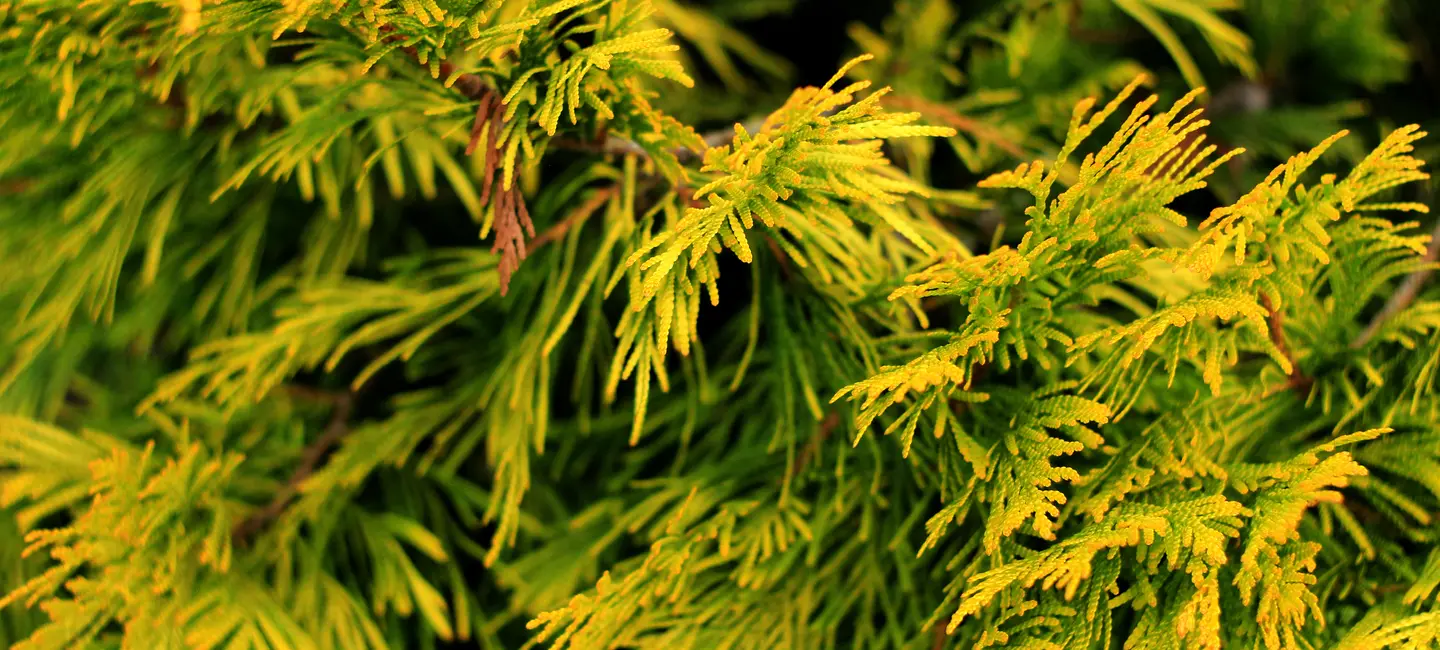
Thuja is a tree. The leaves and leaf oil have been traditionally used as medicine. Thuja is used as a flavoring agent in foods and beverages and as a fragrance in the manufacturing of cosmetics and soaps.
People use thuja for various conditions, including respiratory tract infections, cold sores (herpes labialis), osteoarthritis, and many others, but there is no good scientific evidence to support these uses.
Is It Effective?
There is interest in using thuja for a number of purposes, but there isn't enough reliable information to say whether it might be helpful.
Is it Safe?
Thuja contains chemicals that might affect the immune system. It also contains a chemical called thujone that can cause brain problems.
When taken by mouth: Thuja is LIKELY SAFE when products that are thujone-free are taken in food amounts. But it is POSSIBLY UNSAFE to take thuja in the larger amounts found in medicine. Large doses of thuja can cause queasiness, vomiting, diarrhea, seizures, and death.
When applied to the skin: There isn't enough reliable information to know if thuja is safe or what the side effects might be.
Special Precautions & Warnings:
Pregnancy and breast-feeding: It's LIKELY UNSAFE to take thuja by mouth if you are pregnant. Thuja might cause a miscarriage. It is also LIKELY UNSAFE to take thuja by mouth if you are breast-feeding. Stay on the safe side and avoid use.
"Auto-immune diseases" such as multiple sclerosis (MS), lupus (systemic lupus erythematosus, SLE), rheumatoid arthritis (RA), or other conditions: Thuja might cause the immune system to become more active, and this could increase the symptoms of auto-immune diseases. If you have one of these conditions, it's best to avoid using thuja.
Seizures: Taking thuja might cause seizures in some people. Don't take thuja if you have a history of having seizures.
Medications that decrease the immune system (Immunosuppressants)
Interaction Rating=Moderate Be cautious with this combination.
Thuja can increase the activity of the immune system. Taking thuja along with some medications that decrease the immune system might decrease these medications' effectiveness.
Some medications that decrease the immune system include azathioprine (Imuran), basiliximab (Simulect), cyclosporine (Neoral, Sandimmune), daclizumab (Zenapax), muromonab-CD3 (OKT3, Orthoclone OKT3), mycophenolate (CellCept), tacrolimus (FK506, Prograf), sirolimus (Rapamune), prednisone (Deltasone, Orasone), and other corticosteroids (glucocorticoids).
Medications that increase the chance of having a seizure (Seizure threshold lowering drugs)
Interaction Rating=Moderate Be cautious with this combination.
Some medications increase the chance of having a seizure. Taking thuja might cause seizures in some people. Taking medications that increase the chance of having a seizure along with thuja might increase the risk of having a seizure. Do not take thuja with medication that increases the chance of having a seizure.
Some medications that increase the chance of having a seizure include anesthesia (propofol, others), antiarrhythmics (mexiletine), antibiotics (amphotericin, penicillin, cephalosporins, imipenem), antidepressants (bupropion, others), antihistamines (cyproheptadine, others), immunosuppressants (cyclosporine), narcotics (fentanyl, others), stimulants (methylphenidate), theophylline, and others.
Medications used to prevent seizures (Anticonvulsants)
Interaction Rating=Moderate Be cautious with this combination.
Medications used to prevent seizures affect chemicals in the brain. Thuja may also affect chemicals in the brain. By affecting chemicals in the brain, thuja may decrease the effectiveness of medications used to prevent seizures.
Some medications used to prevent seizures include phenobarbital, primidone (Mysoline), valproic acid (Depakene), gabapentin (Neurontin), carbamazepine (Tegretol), phenytoin (Dilantin), and others.
Herbs that contain thujone: Thuja can contain a chemical called thujone. Thujone can cause seizures. Using thuja along with other herbs that also contain thujone may increase the chance of having seizures. Some of these herbs are oak moss, oriental arborvitae, sage, tansy, tree moss, and wormwood.
There are no known interactions with foods.
The appropriate dose of thuja depends on several factors such as the user's age, health, and several other conditions. At this time there is not enough scientific information to determine an appropriate range of doses for thuja. Keep in mind that natural products are not always necessarily safe and dosages can be important. Be sure to follow relevant directions on product labels and consult your pharmacist or physician or other healthcare professional before using.
American Arborvitae, Arborvitae, Cedar Leaf Oil, Cèdre, Cèdre Blanc, Cèdre Blanc de l'Est, Cèdre Blanc du Nord, Cèdre Commun, Eastern Arborvitae, Eastern White Cedar, Hackmatack, Huile de Feuilles de Cèdre, Northern White Cedar, Swamp Cedar, Thuga, Thuja, Thuja occidentalis, Thuya, Thuya du Canada, Thuya d'Occident, Tree of Life, White Cedar.
Information on this website is for informational use only and is not intended to replace professional medical advice, diagnosis, or treatment. While evidence-based, it is not guaranteed to be error-free and is not intended to meet any particular user’s needs or requirements or to cover all possible uses, safety concerns, interactions, outcomes, or adverse effects. Always check with your doctor or other medical professional before making healthcare decisions (including taking any medication) and do not delay or disregard seeking medical advice or treatment based on any information displayed on this website.
© TRC Healthcare 2024. All rights reserved. Use and/or distribution is permitted only pursuant to a valid license or other permission from TRC Healthcare.
